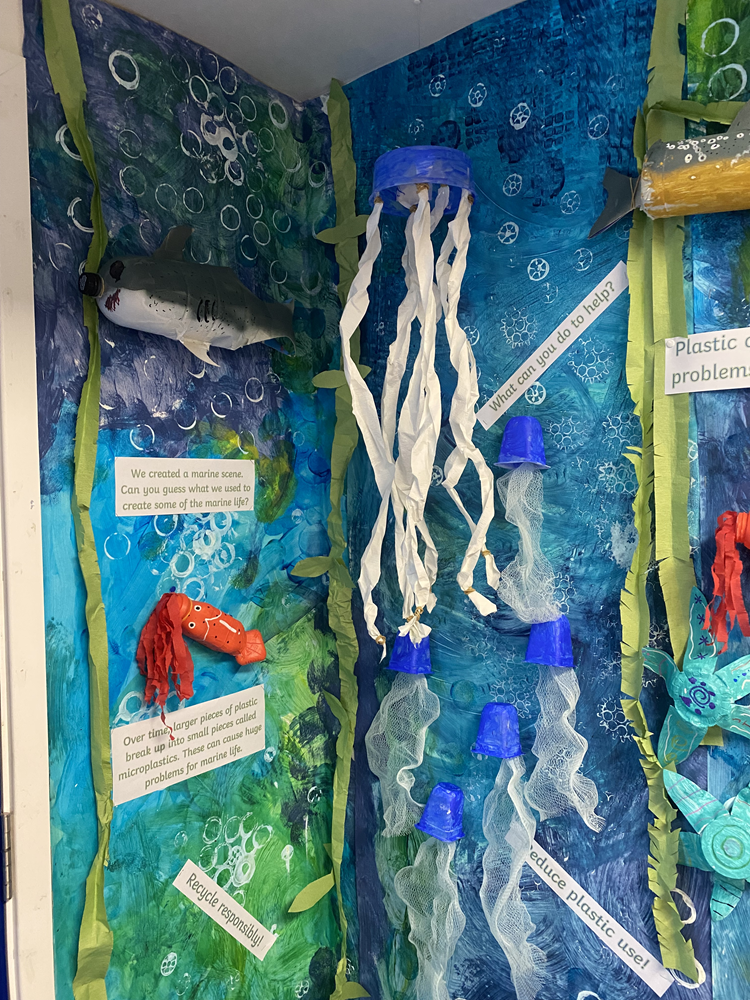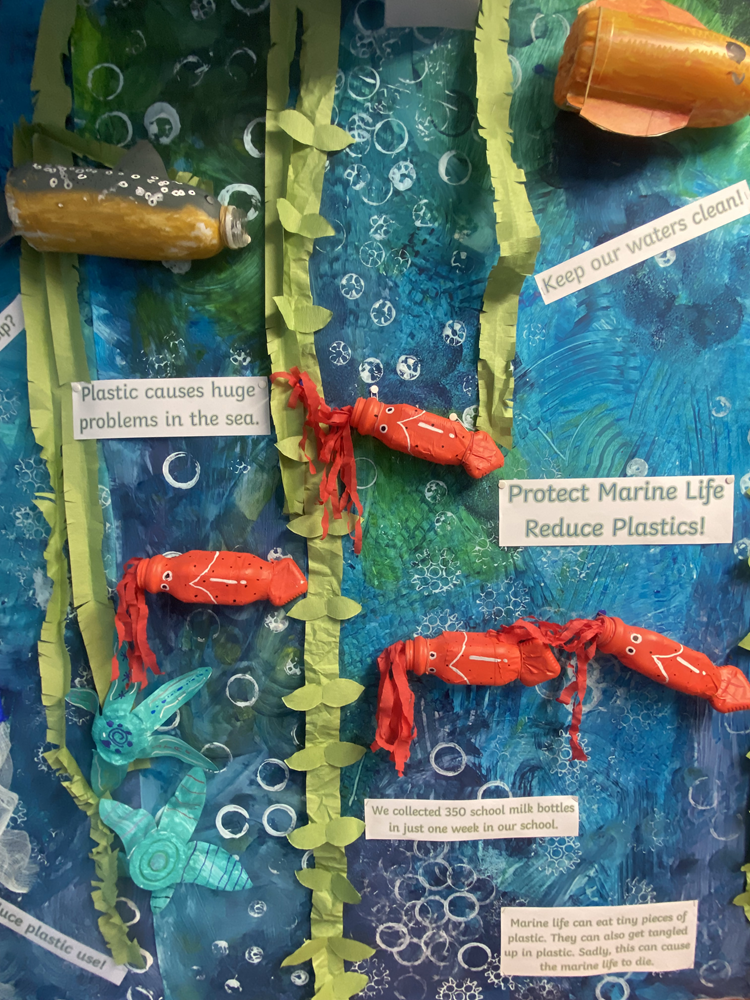Eco-Schools
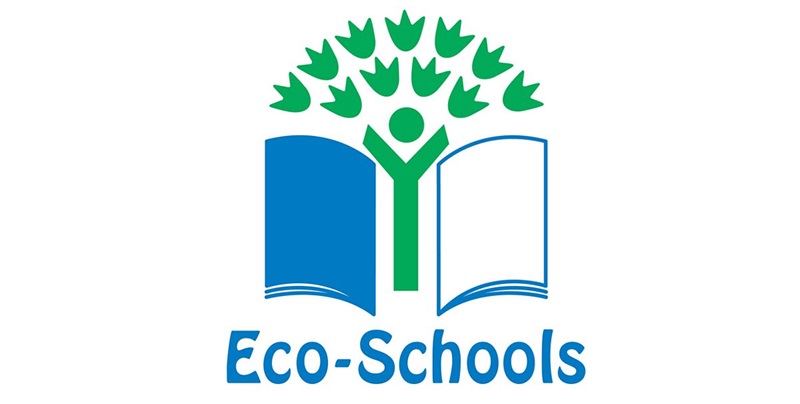
We are currently working towards becoming an Eco-School. To gain this award we need to work on three of the ten strands during each year. The ten strands are:
- Biodiversity
- Energy
- Global Citizenship
- Healthy Living
- Litter
- Marine
- School Grounds
- Transport
- Waste
- Water
Our School Council are doing a great job working as our Eco-Council this year and have done a major audit to find out which of the ten topics we need to concentrate on. They found out that we were weakest in these three areas - so these are our focus for this year!
- Waste
- Marine (single-use plastics)
- Energy
We are now working on auditing our energy use, collecting up plastic milk bottles to make into a sculpture to raise awareness of how much plastic we throw away, and composting our fruit and veg snack leftovers.
What have we achieved so far?
Year 5 worked in their Music lessons to write the lyrics and melody for a song which summarises all that we've been learning. This song is our new school Eco-Code.
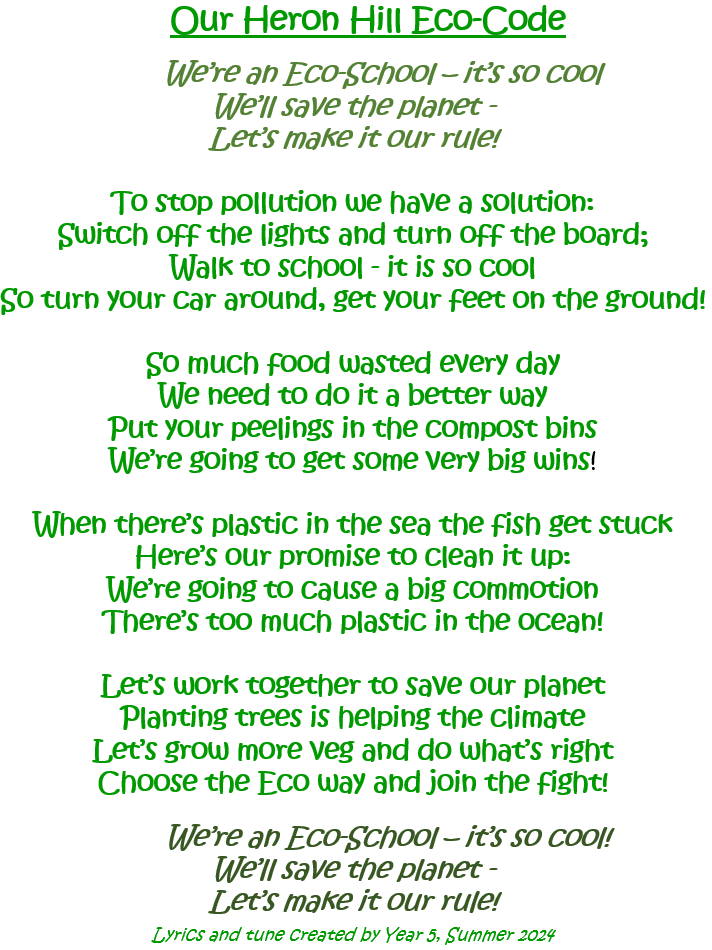
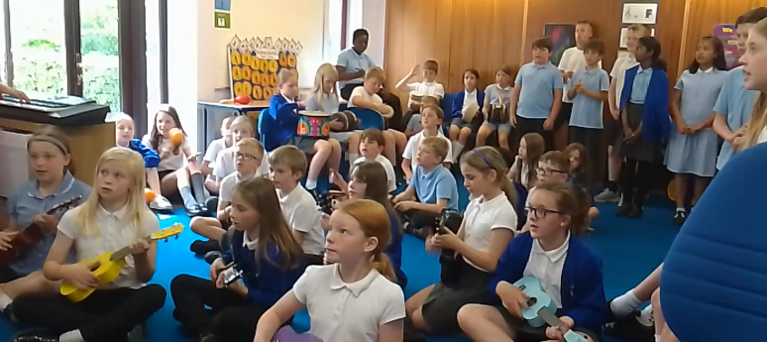
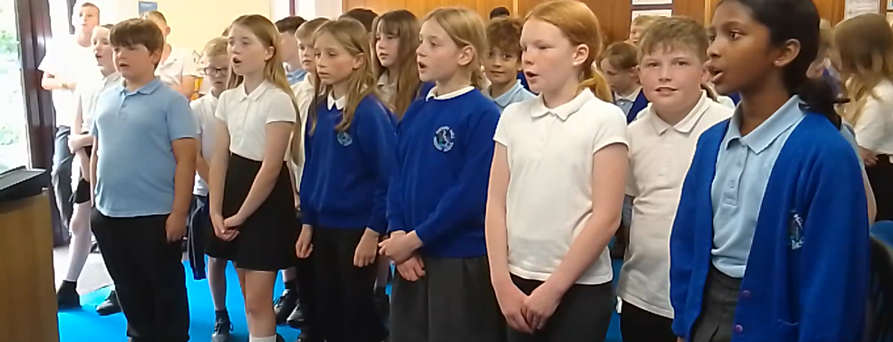
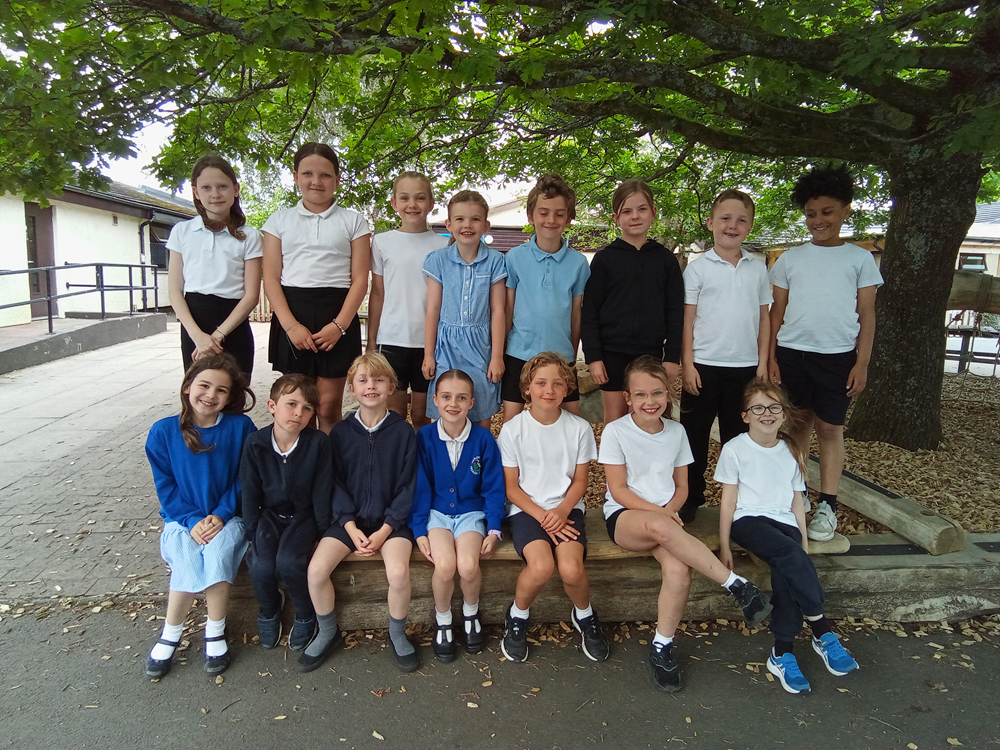
Waste
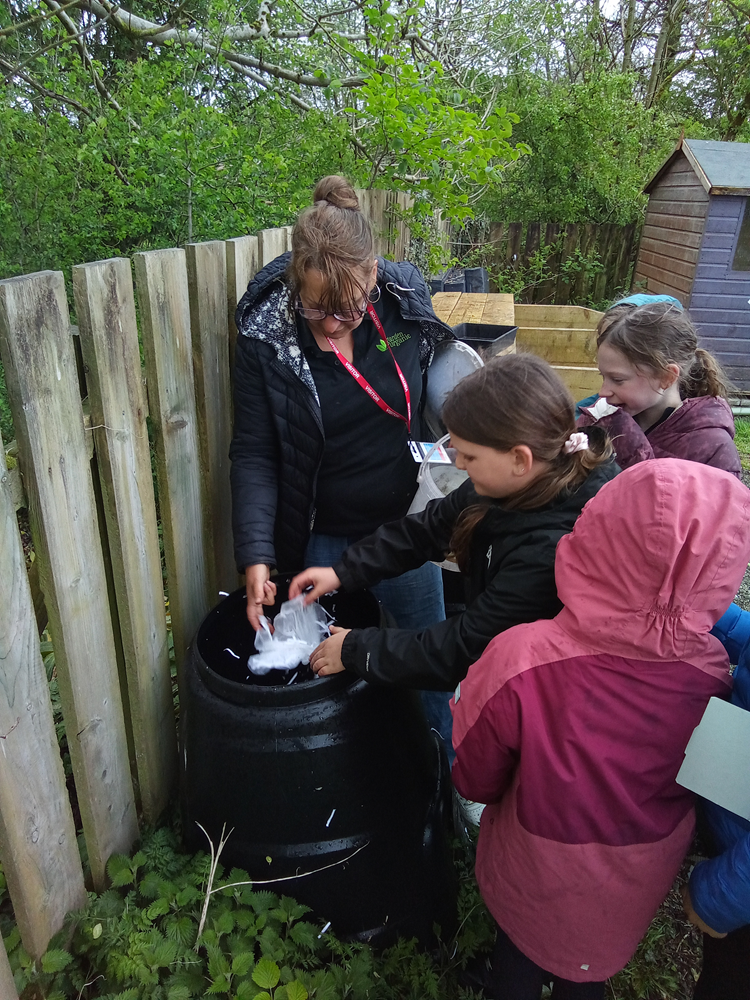
This year, Eco-Club have implemented a brand new school-wide composting scheme. Previously, all fruit and vegetable waste from snack times was placed in regular bins, which means we had been missing out on a great opportunity to avoid waste being sent to landfill. Each year group now has a green compost bin, which Eco-Club gather weekly to take to our new composting area. The waste from each class is weighed before being taken to our composting area so that we can keep track of how much waste we are composting.
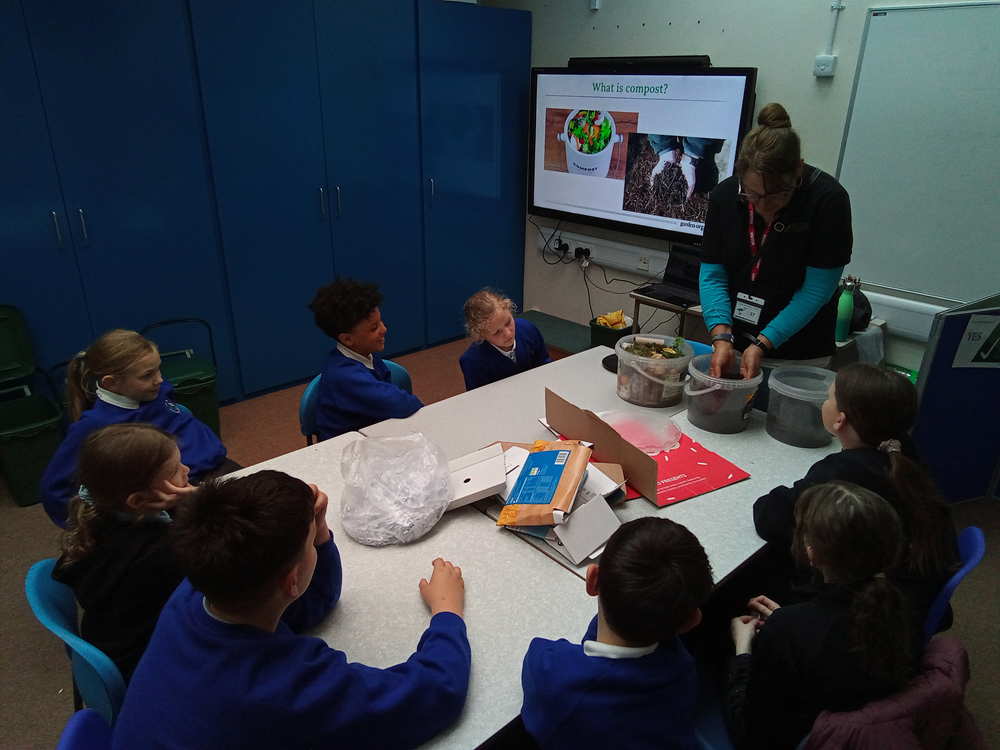 |
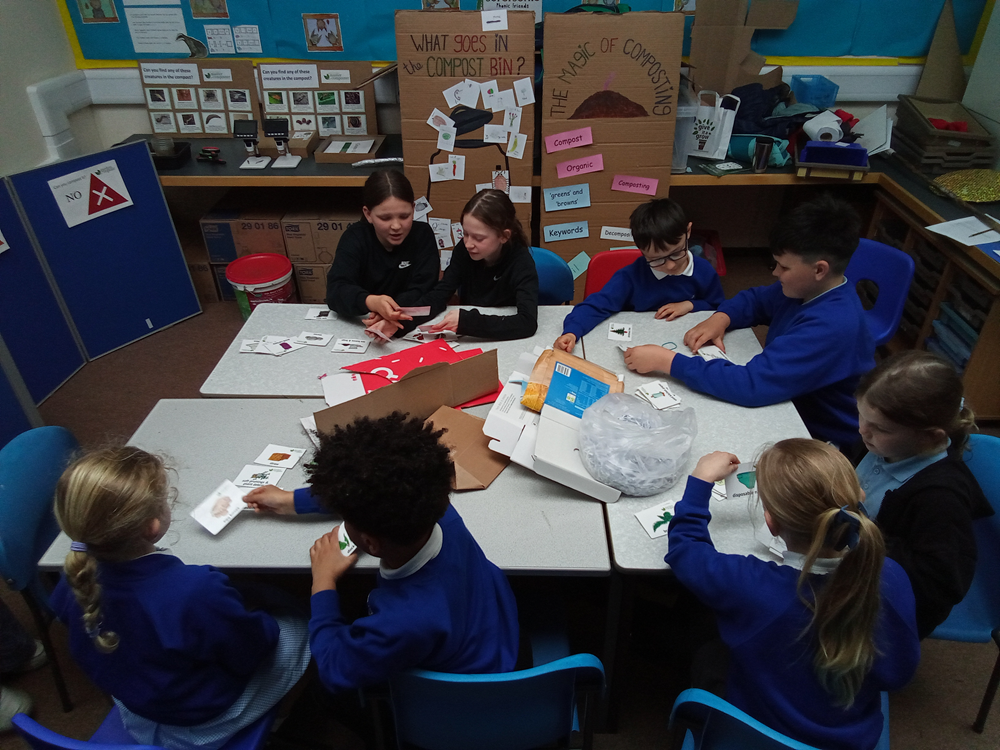 |
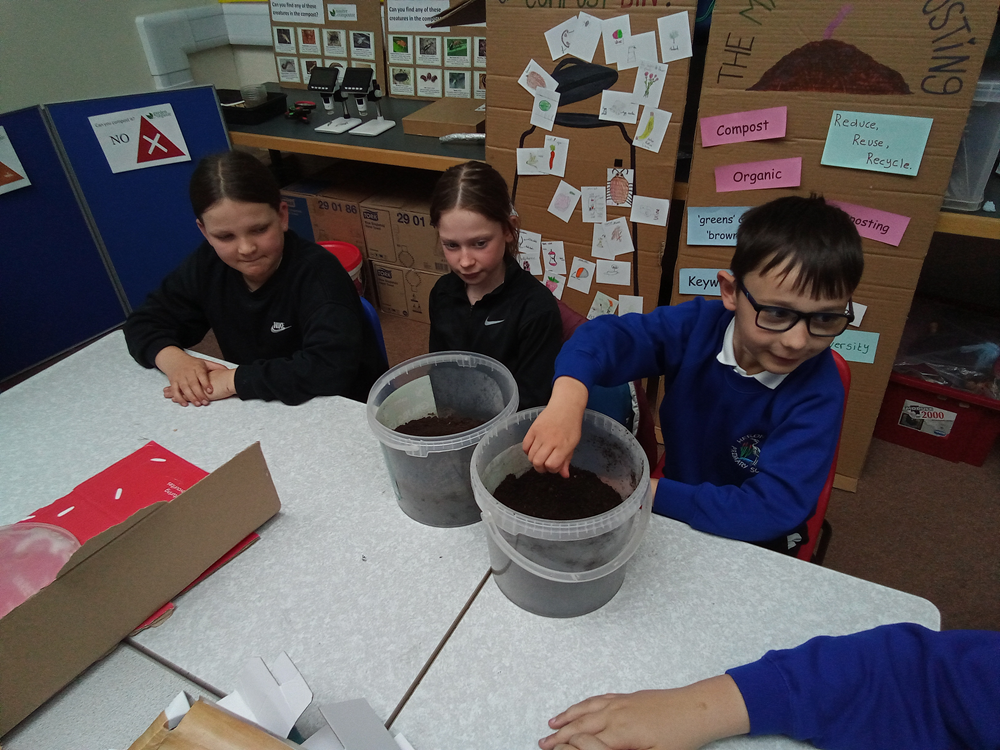 |
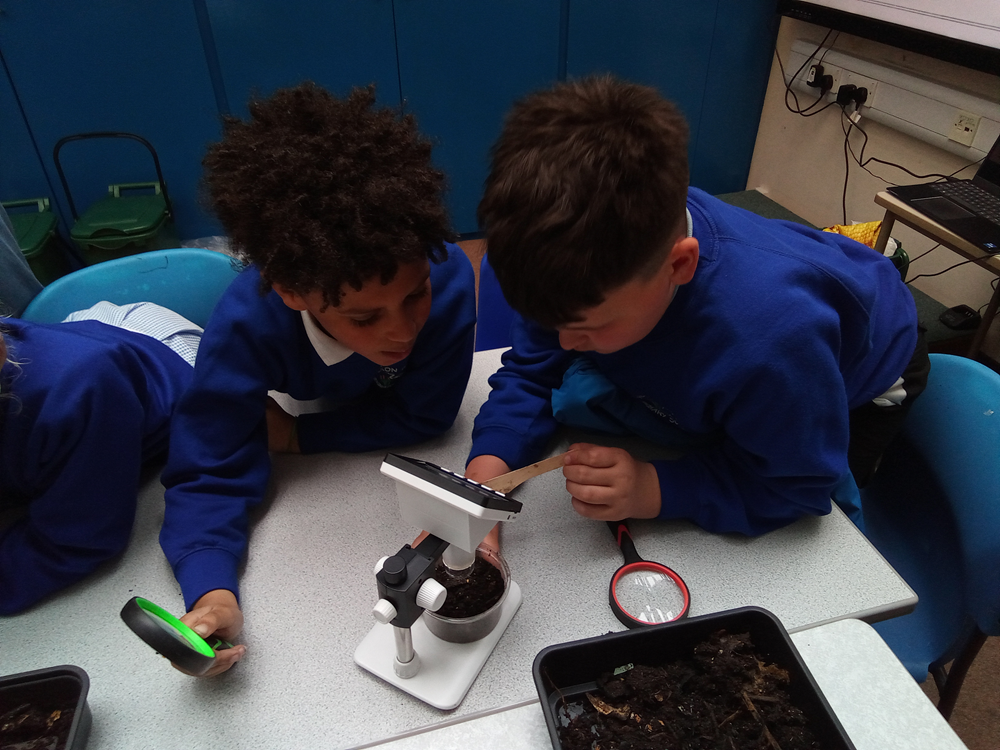 |
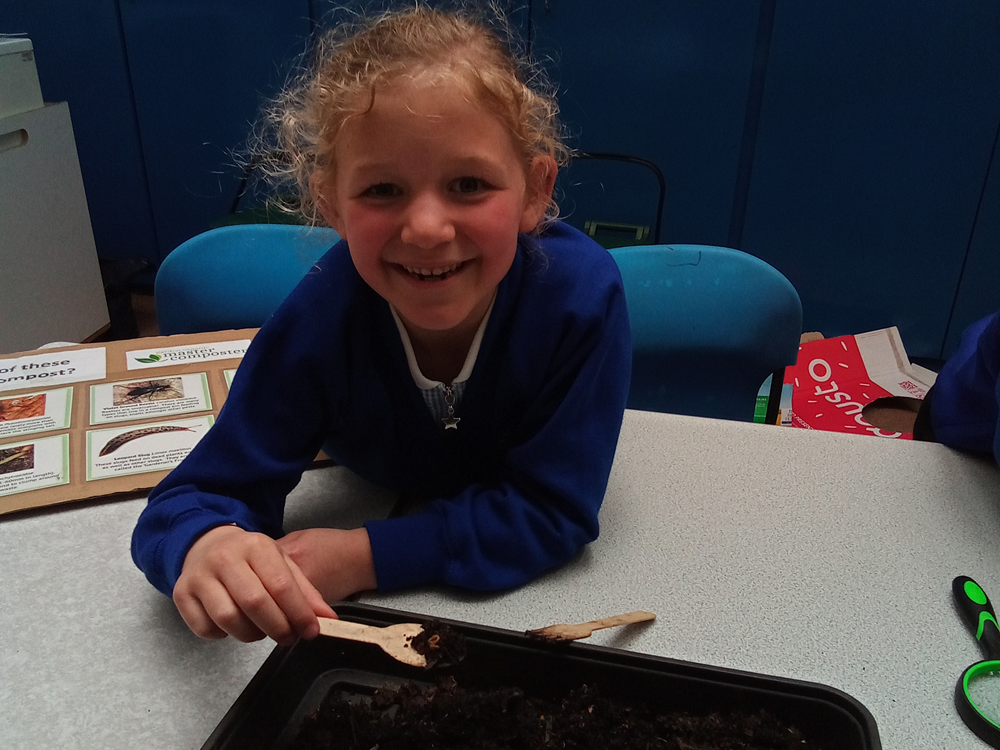 |
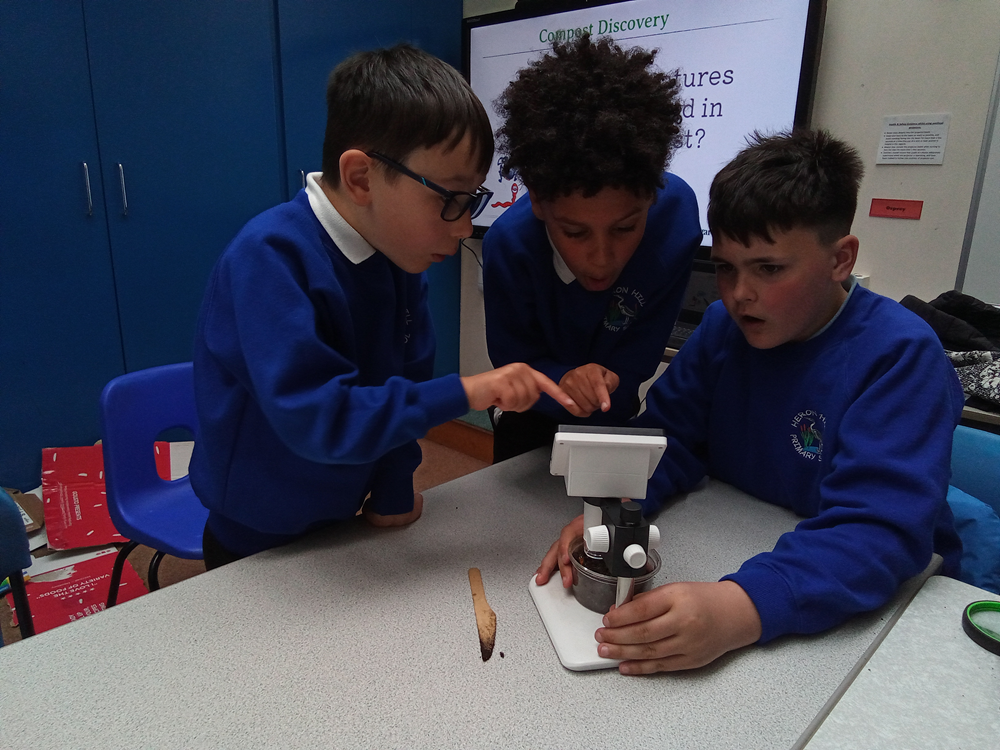 |
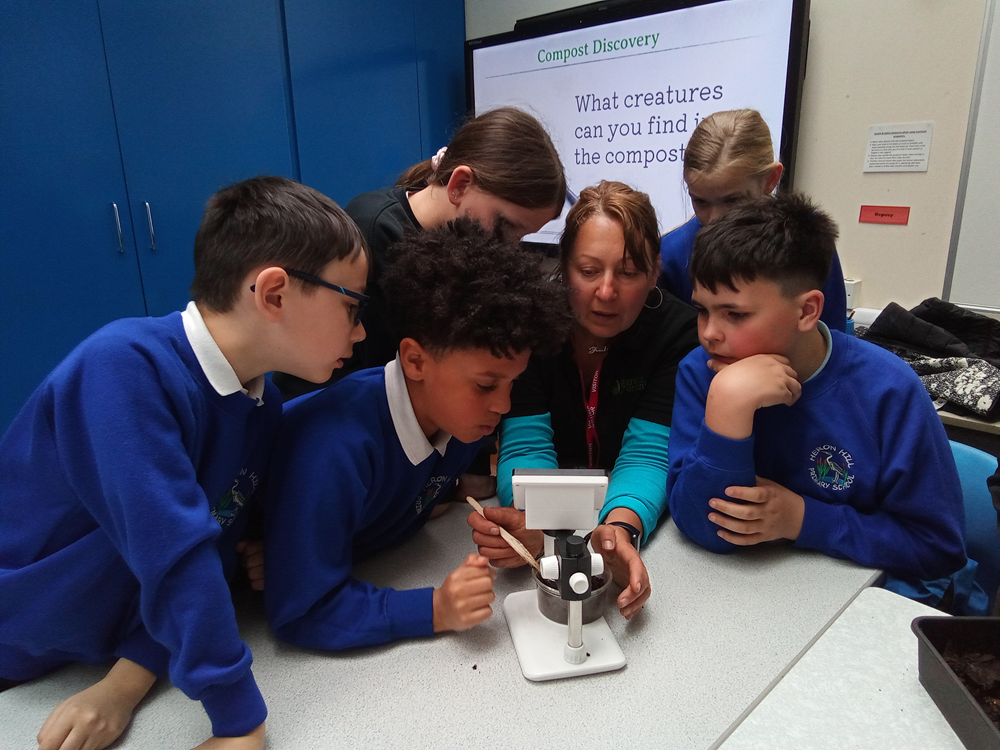 |
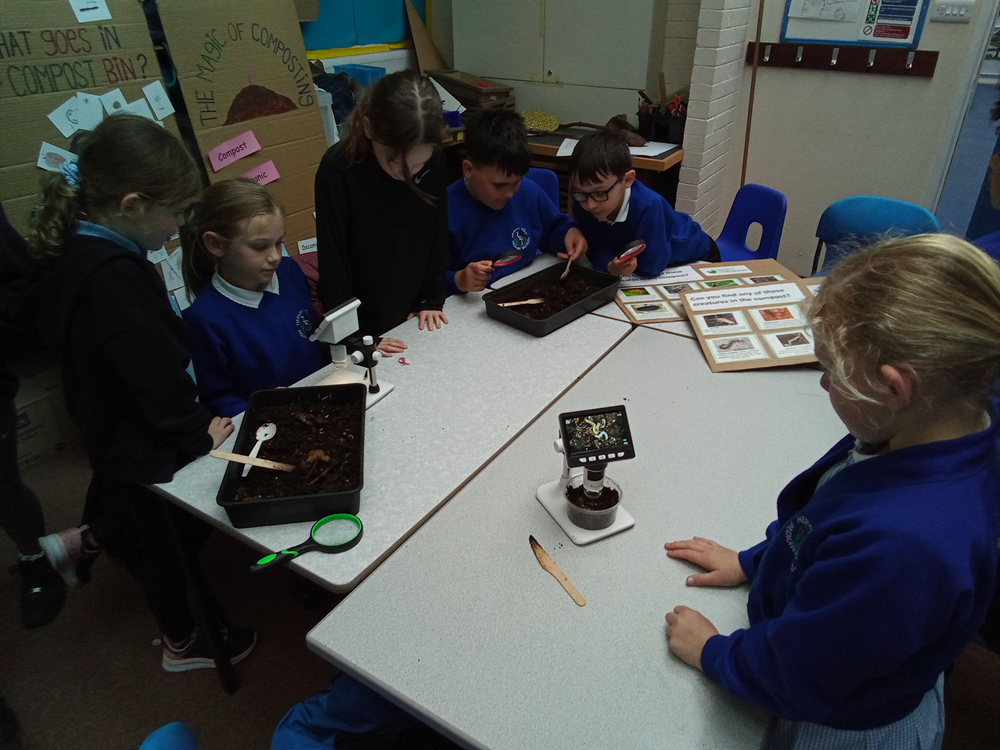 |
To highlight the importance of turning organic waste into compost, we held a Garden Organic workshop where the children learnt the environmental benefits of this practice. We had a close look at the invertebrates that healthy composts and soils can support and thought about all the materials that can be composted. We make sure that we supplement our food waste with pieces of paper and cardboard to enrich our compost; we can't wait to add our compost to the soil in our polytunnel and growing beds when it is ready.
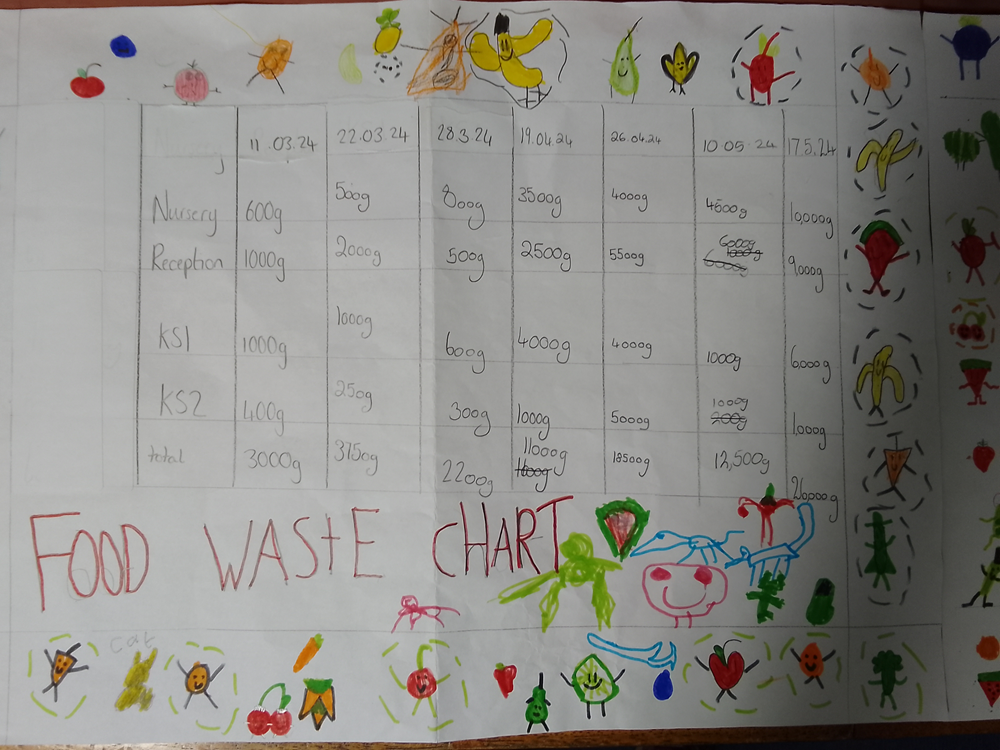
Our weekly food waste record.
Marine

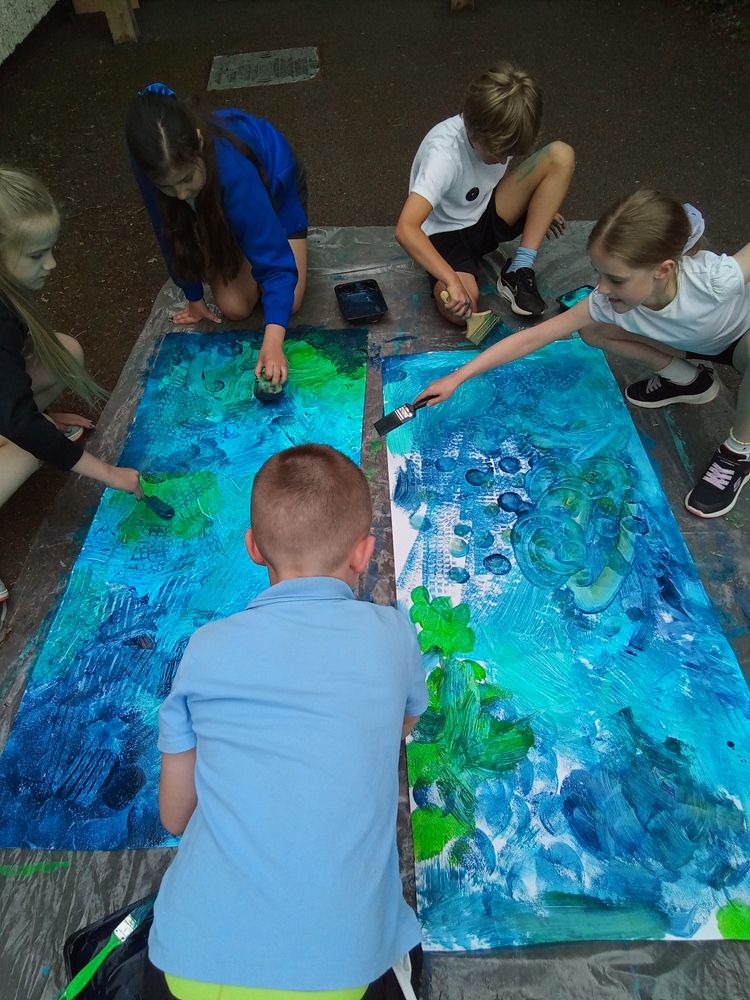 |
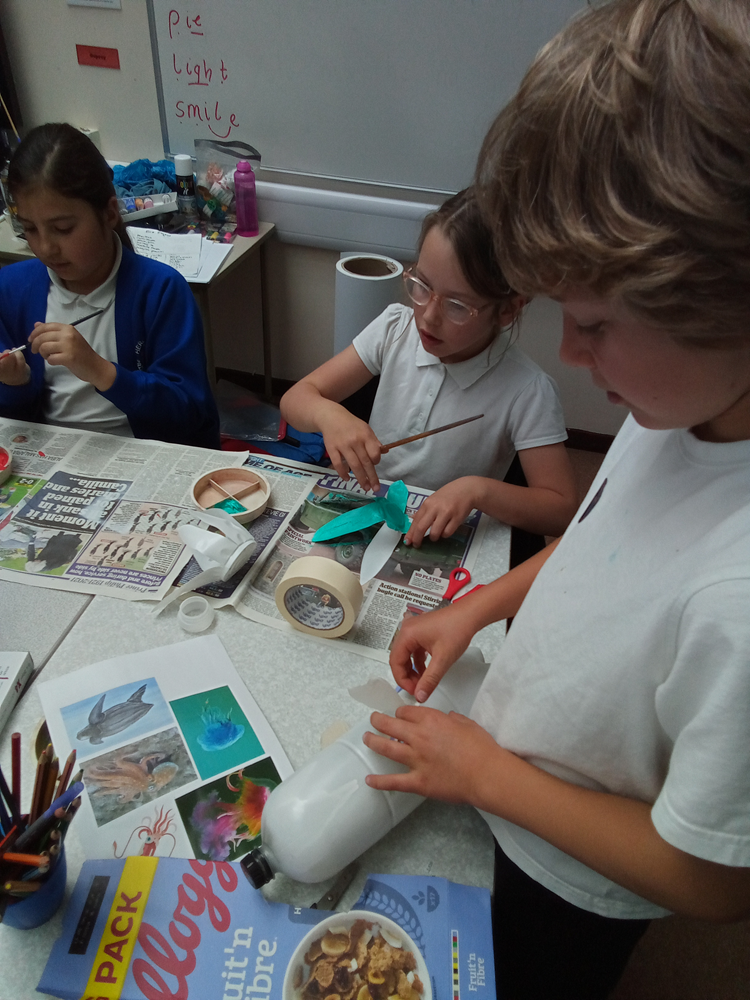 |
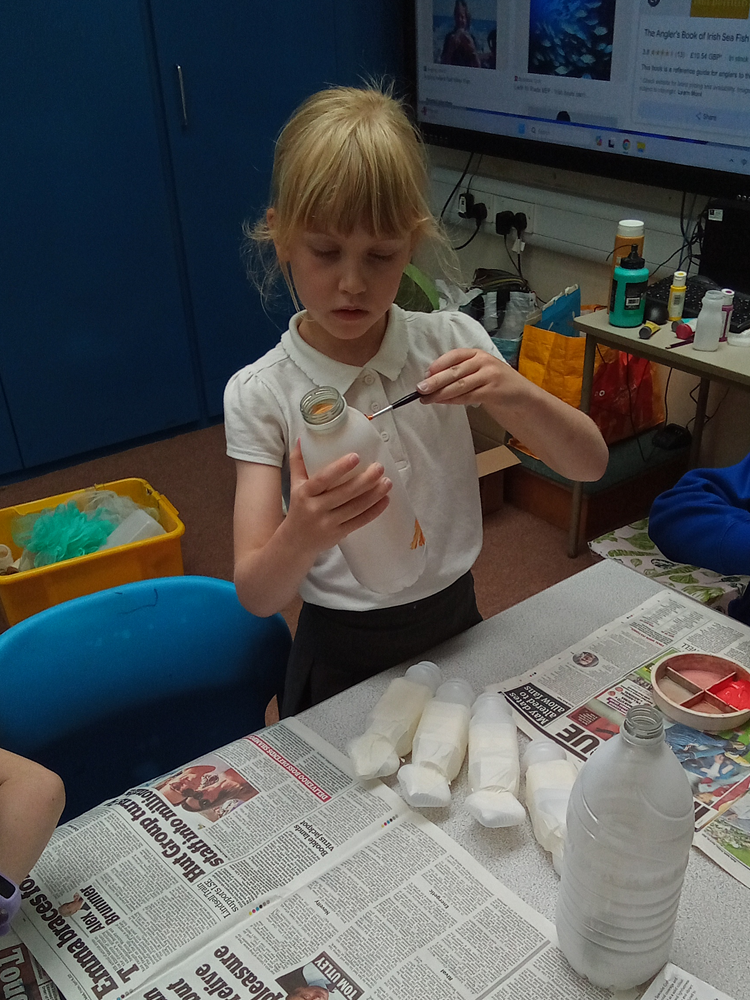 |
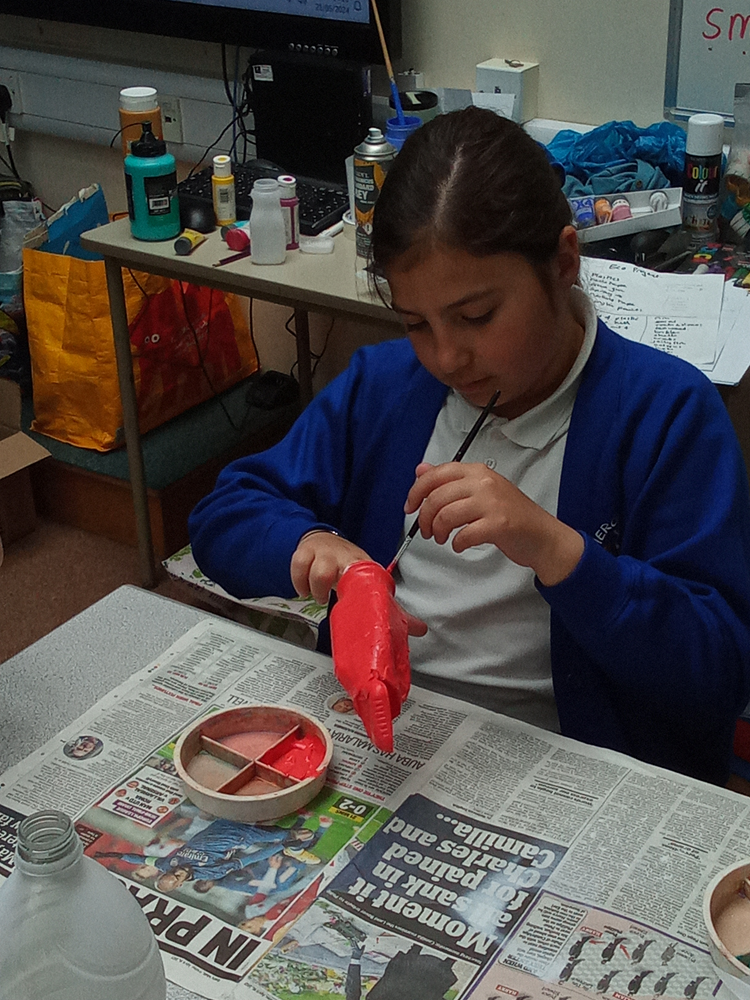 |
The Marine Team have worked with local artist and former Heron Hill staff member Kerry Howarth to create a thought-provoking display that highlights how plastic can impact our oceans. We have repurposed plastic waste to create a variety of sea creatures that could be impacted negatively by our thoughtless pollution. In amongst the creatures, the children have decided upon the messages that they want their display to convey.
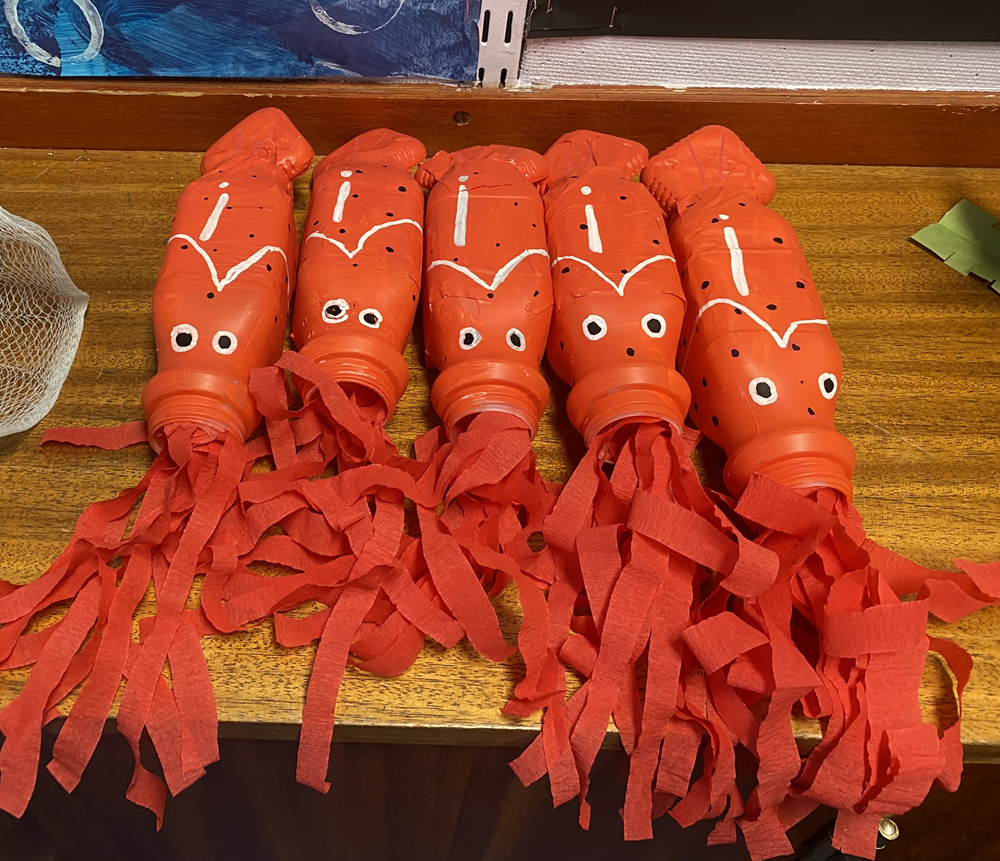 |
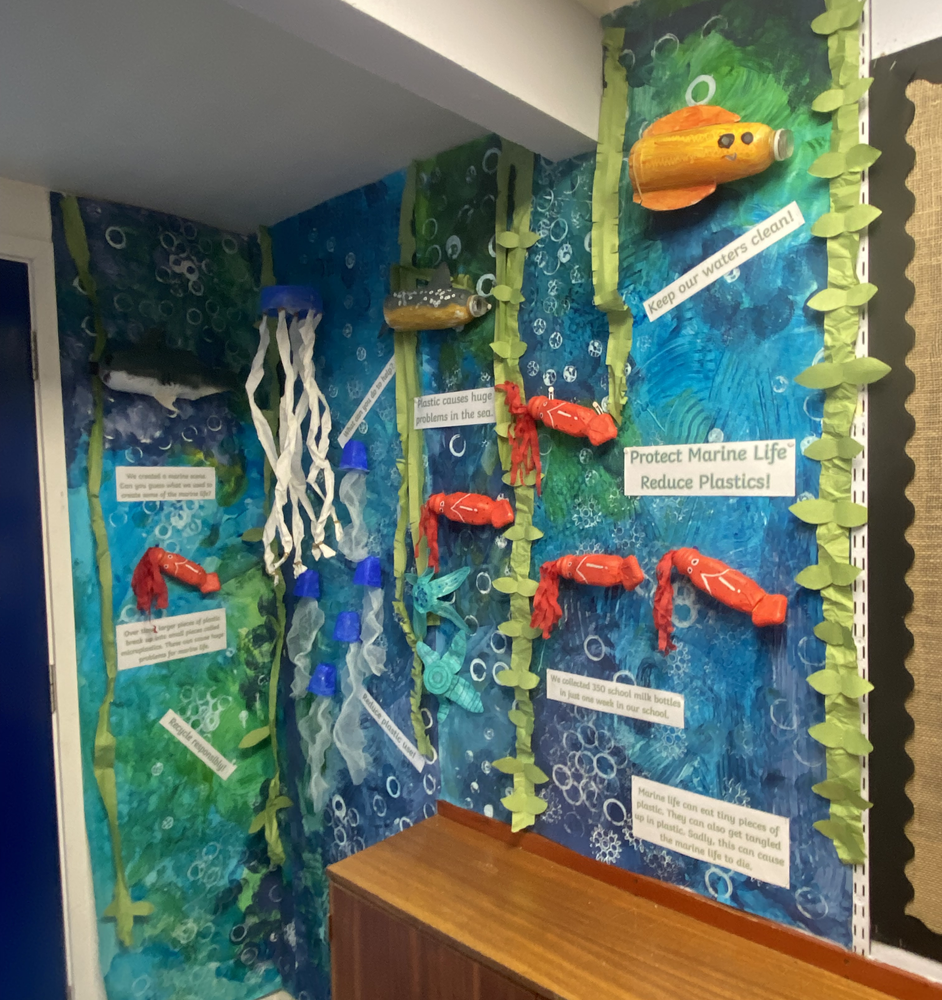 |
|
|
|
Other Work
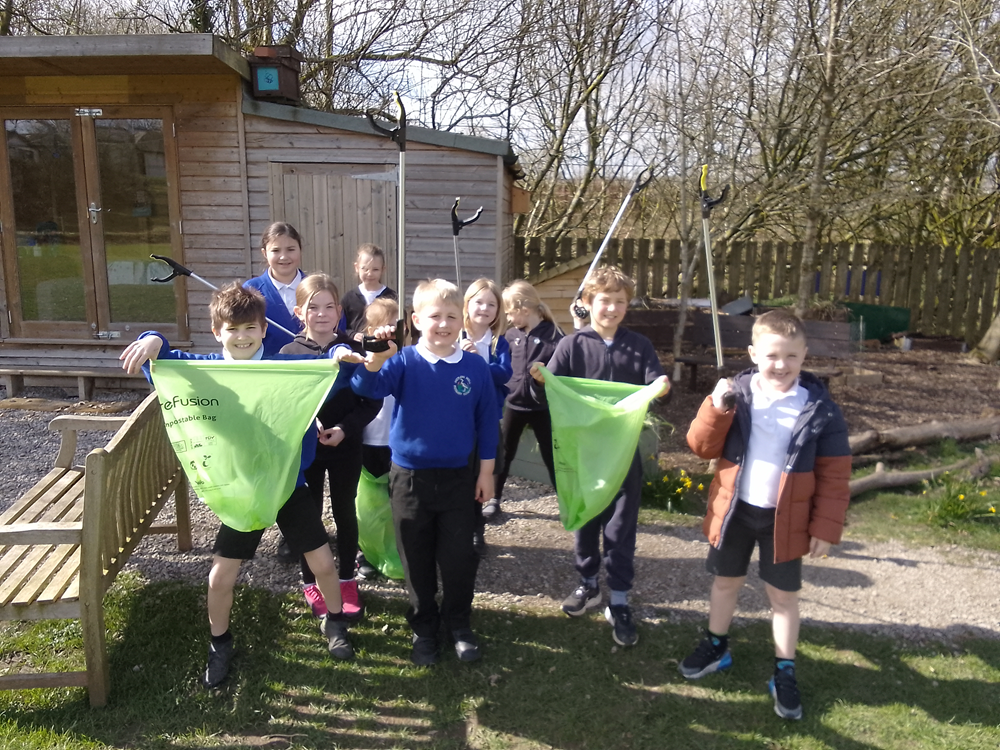
Whenever we have time, we also love to make sure our school grounds are clean and tidy by going on a litter hunt with our pickers. Another great way to reduce plastic pollution in particular.

